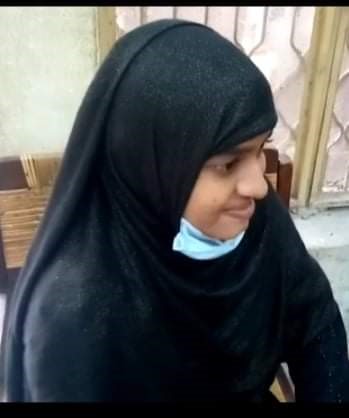
Pakistani court rejects Christian father’s petition seeking recovery of his daughter forcibly converted, and married to her abductor
On 24th September, the Lahore High Court (LHC) rejected a petition filed by a Christian man, Gulzar Masih, for the recovery of his underage daughter Chashman Kanwal who was allegedly forcibly converted to Islam and married to a Muslim man, Muhammad Usman.
Masih, a rickshaw driver from Samanabad, Faisalabad, stated in court that his daughter had been kidnapped by Usman and his accomplices. She is a minor and on September 13, she turned 14 years old. Therefore, according to the law, her marriage cannot be solemnised.
However, Mr Justice Tariq Nadeem ignored Masih’s argument and rejected his petition ruling that Muslim jurists give more importance to the mental capacity of the child instead of their age.
Justice Tariq Nadeem further said that Ayesha Bibi (Chashman’s Islamic name) is 17-years/old and she had given her statement in front of the magistrate that she is accepting Islam of her own free will and she has not been kidnapped. Giving Islamic reference, he also stated that Hadrat Ali (R.A) accepted Islam at the age of 10, so why then couldn’t a girl aged 17 accept Islam.
In this judgment, the court used a measuring scale of the mental age, not the age described in the Nadra’s birth certificate for the conversion of Islam.
Chashman was kidnapped on 27th July 2021, according to Masih’s statement on the same day. He dropped her at school on his own rickshaw, but she never came back. He said he searched for his daughter everywhere but couldn’t find her.
When we couldn’t find her, registered a first information report (FIR) at the police station in Samanabad, Faisalabad under section 365 B. The police were able to trace the girl, but they never gave us custody, saying she is Muslim as she had embraced Islam and also willingly married Usman.
Justice Nadeem remarked the Supreme Court had earlier ruled that Article 20 of the Constitution gives rights to citizens to propagate their faith but that does not mean a person can be forcibly converted to another religion by coercion or inducement.
The judge was of the opinion that neither the Holy Quran nor the Prophet Muhammad’s (PBUH)saying determined the minimum age for conversion to Islam.
Masih told, my family is very sad and disappointed by the court’s decision. His daughter is only 14 and this is according to Nadra’s (National Database & Registration Authority) birth certificate, and according to the law she cannot be married before the age of 16 but the judge is not willing to accept the fact.
He said: “I am not going to stop here but we will appeal against this decision.”
Nasir Saeed, Director of CLAAS-UK, has expressed his grief over the recent judgment and said it is very unfortunate that secular courts are making their decision under the Islamic law, while shariah law is not fully implemented in the country.
He added: “The issue of abduction, forced conversion to Islam, rape, and forced marriage remain an imminent threat for religious minority women and children, especially to the Christian and Hindu women and girls, and we are committed to supporting such cases and raising awareness about their persecution because of their religion.
“It is a very serious matter and is an open violation of the human rights treaties ratified by Pakistan. Pakistan is under pressure from the Islamic groups but the world is very concerned and taking this matter very seriously.
“Separating underage children from their parents in the name of Islam cannot be accepted at any cost.”
Mr Saeed said that in more than half the countries around the world, the legal age of maturity is 18 while in Pakistan it is 16 in Punjab, and 18 in Sindh, and the court and other law enforcement agencies should respect and implement it.
He added that this is a serious issue for the religious minorities as their minor daughters continue to be taken away from them in the name of religion. Such judgments are not doing any service neither to the country nor to Islam and this practice has to be stopped, Mr Saeed said.
He continued: “We have recently launched a new campaign to double our efforts to raise awareness and to stop this inhuman practice which cannot be acceptable in the 21st century anywhere in the world.
“Instead of turning a blind eye, Pakistan must pay attention to this festering issue and bring all the perpetrators to justice.”


